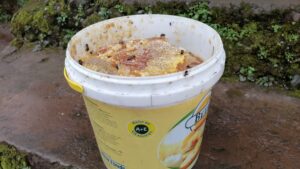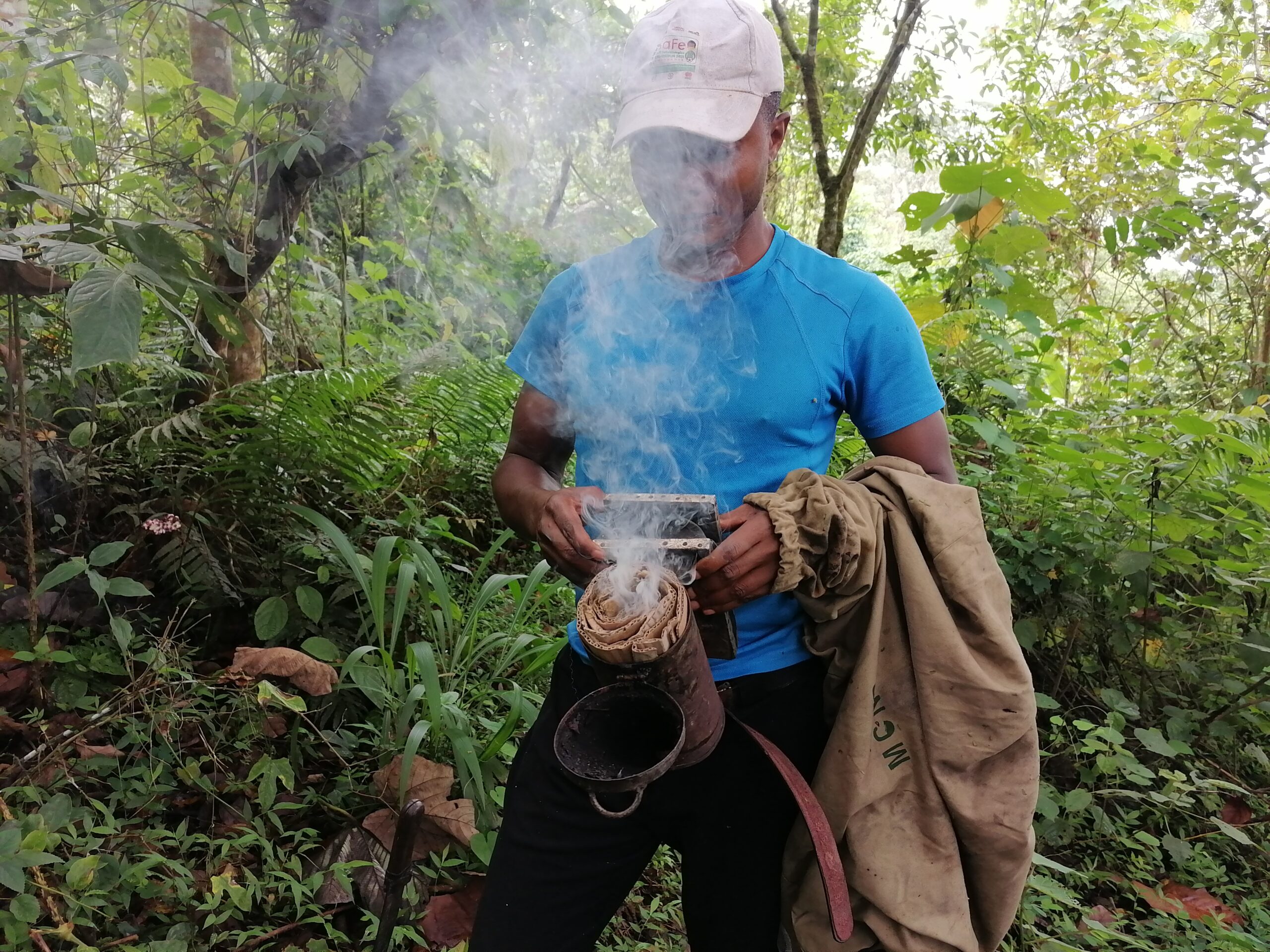
Boris-Karloff Batata

Boris-Karloff Batata
“There is nobody into beekeeping without having the attitude of growing trees or seeing a naturally beautiful environment” – Evambe Thompson, Buea-based apiculturist
It is 10am in Vasingi Village, one of the communities on the boundary of Mount Cameroon National Park in the Buea Municipality of Cameroon. The sun is bright, which is an indication for a great day to go check the apiary. The apiculturist Evambe Thompson gets his bag ready to journey to Mount Cameroon forest where he has stationed his beehives.
His backpack is large enough to contain two bee suits, an additional pair of pants, a smoker, some scrap papers, a match and two 10 liter buckets to collect the honey and hives.
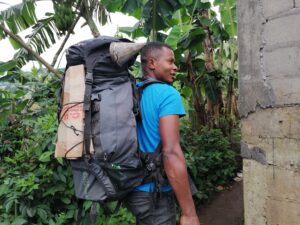
While in the forest, Thompson shows me the various apiaries. He has twelve of them in the forest stationed strategically in different locations as well as twelve boxes he relies on for a rich harvest. Each box serves as a site where bees are safe to produce their honey. Thompson also explains that harvesting is seasonal, hence, prone to the impact of climate change.
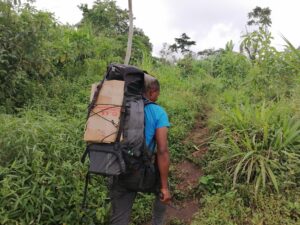
If the year is good, Thompson can harvest between seven to nine liters in a single outing. Annually, he can harvest around 100 liters per year, earning him approximately $656 (FCFA400,000).
By pressing on a smoker, Thompson blows enough air to keep the scrap paper inside burning. He uses the resulting smoke to keep the bees calm during harvesting.
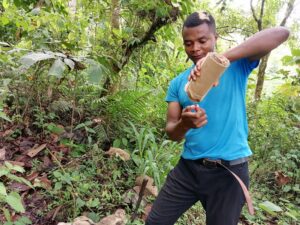
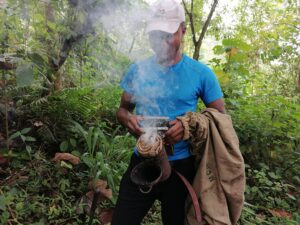
Thompson explains the various seasons involved in bee farming in that part of the country. “Normally there are two seasons, June and December but with the climate change, the weather and the flowering season too, are different. This greatly affects the amount of nectar that the honeybees collect to produce in a particular season so it alters the way we collect. So we start harvesting in March then in June and after June we can only harvest again in December or March the following year.”
“Plants are a vital part in apiculture commonly known as bee farming. This is so because, in as much as bees pollinate the plant, the plant produces nectar for the bee so if the bees don’t get enough nectar they can’t produce honey,” said Thompson.
Thompson picked up the skills of beekeeping from his grandfather who was a poacher and wild honey collector but later learned modern ways of keeping bees as he grew up. Although he initially did not learn beekeeping for conservation’s sake until authorities from Mount Cameroon came into the picture.
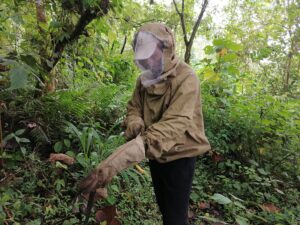
It should be noted that unregulated honey harvests have also posed threats to the forest ecosystem because, in order to harvest honey without getting stung, many traditional bee farmers set fires that can often get out of control.
Thompson, however, no longer practices beekeeping unregulated. “The park authority gave me three hives then added two others since they saw that I was serious and hopefully they will get me more hives so I can keep more bees,” he said.
According to the Thompson, “There is nobody into beekeeping without having the attitude of growing trees or seeing a naturally beautiful environment.”
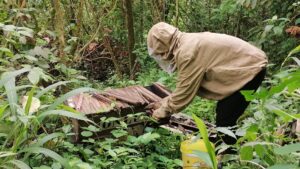
The Mount Cameroon landscape supports forests of exceptional scientific, economic and social value, containing a variety of endemic and endangered flora and fauna species. The land supplies many commercial and subsistence forest products, as well as provides valuable ecosystem services, such as watershed protection. The sad reality is that this forest is rapidly degrading.
The Buea Municipality recently recorded its worst flood in decades and experts blame this occurrence on the degrading nature of the Mount Cameroon forest.
The Southwest Regional delegate of Environment, Nature Protection and Sustainable Development, Set Ekwadi Songe decries the cutting down of trees and advises persons to uphold good practices in order to avoid future natural disasters.
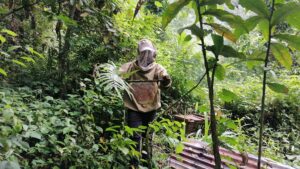
“Five years ago we worked with the council to protect the Buea Forest Reserve in Bokwaogo but if you go there today, you will see people building and carrying out other activities. Our work (on a) daily basis is to ask them to stop building there, but not to fight with them,” said Delegate Songe.
There is a big meeting point between beekeeping and conservation. “Firstly, the bees provide ecosystem services because the bees collect pollens and also carry out seed pollination. There are certain crops that will never grow without beekeeping,” said Thompson.
